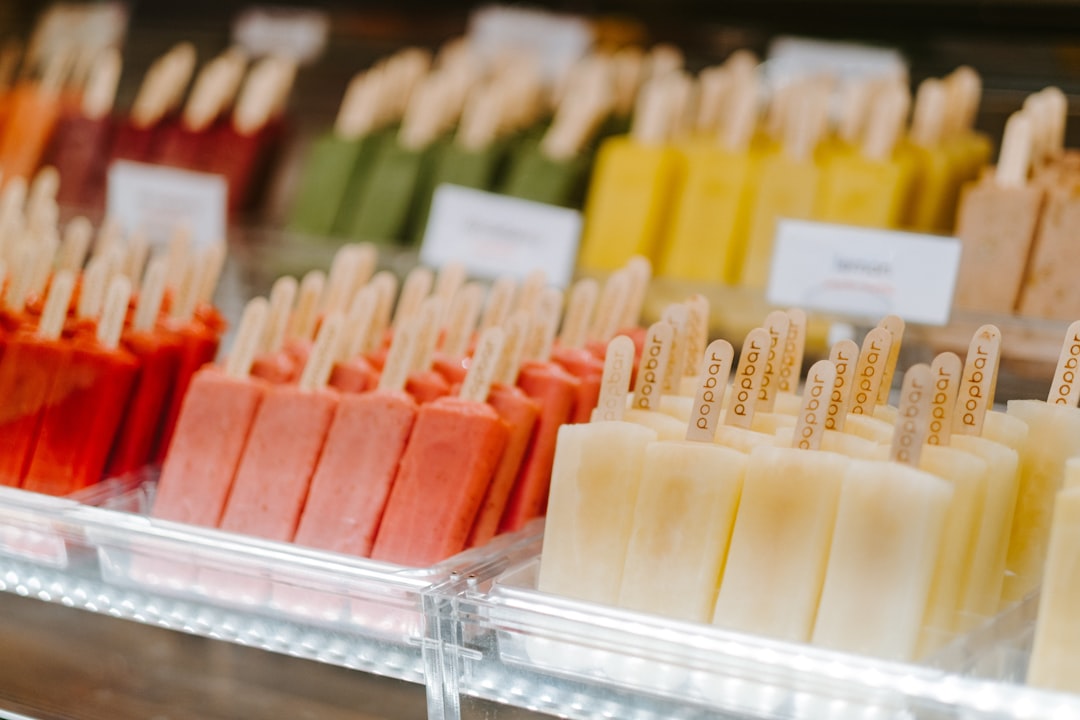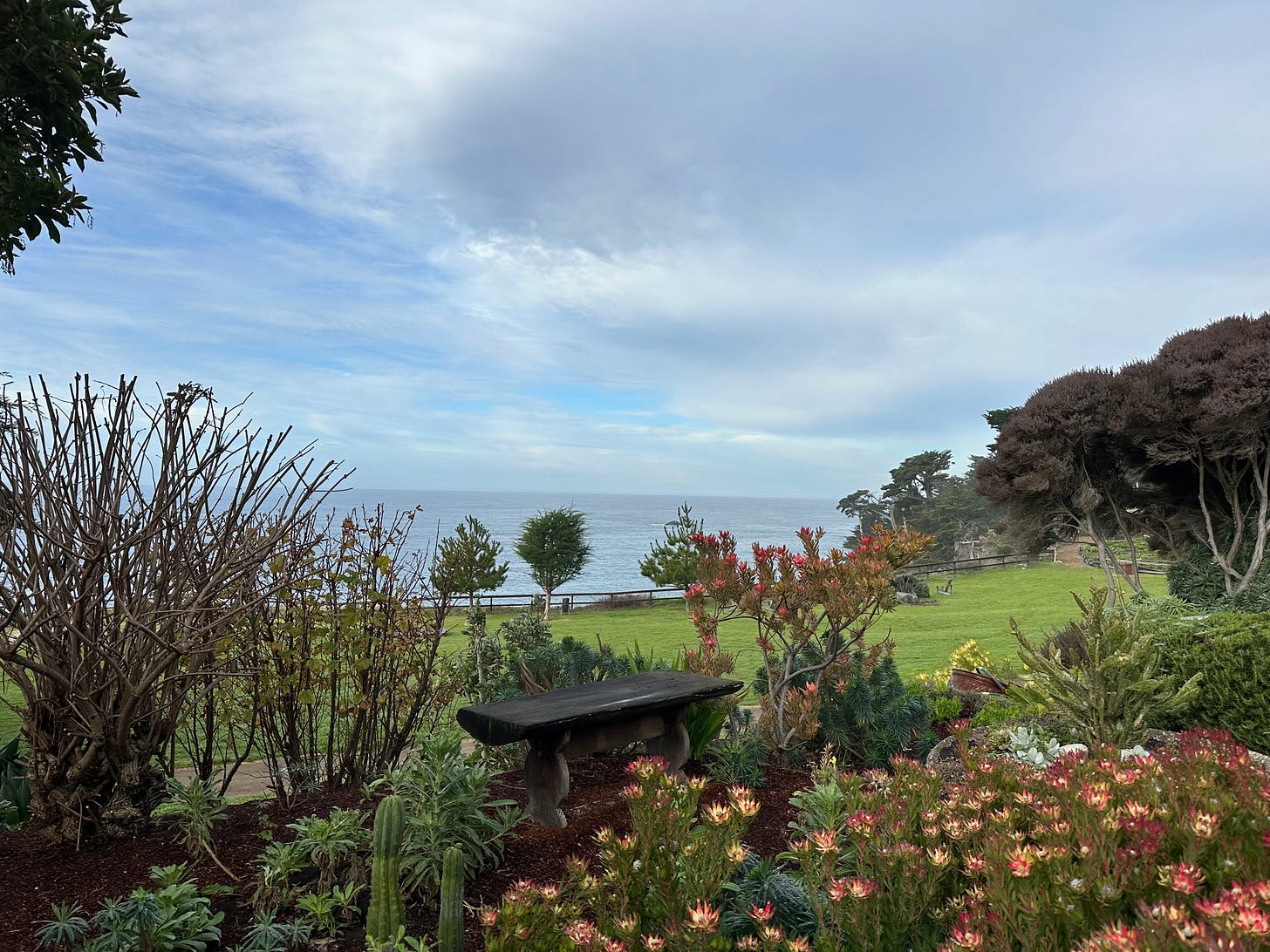Change Is the Only Thing on the Menu
And other lessons from my meditation retreat
On October 6, 2011, Ross and I signed the papers on a home we’d recently purchased in California. That same day in New Jersey, on my mother’s last day of work before retirement, she fell and suffered a traumatic brain injury that landed her in the ICU.
Over the next six months, I flew back and forth across the country multiple times, juggling the logistics of moving/setting up a new house and supporting my parents while working full-time. To call it a stressful time would be an understatement.
Desperate for a way to cope, I enrolled in an eight-week mindfulness-based stress reduction class. With the help of the course (which I’ve taken twice more since then), I began a meditation practice, which I’ve maintained over the last twelve years with varying levels of consistency. Mindfulness has indeed reduced my stress level by helping me get out of my head (where I live much of the time).
In recent years, however, my practice has slipped. With the intention of rebooting it, I signed up for a meditation retreat, which took place this past weekend.
At the risk of being that annoying person who attends a meditation retreat and declares herself transformed, I’ll share that it was, indeed, transformative.
Below are three lessons I took from the experience (there are certainly others, but it’s been a long short week, so I’m trying to keep this relatively brief).
While these lessons apply to meditation, they also apply to life more broadly; in each section, I offer self-reflection questions for you to consider if you’re so inclined.
Don’t try to be “good” - just be consistent
Many of the questions from retreat attendees focused on how to be “good” at meditating. What’s the best way to focus on your breath? How exactly should your posture look? Our wise instructor Dan Zigmond answered them, but he also said something else I found very helpful.
He noted that meditation is one area where he doesn’t try to be “good.” He went on to explain that with his kids, he tries to be a good father. With his partner, he tries to be a good partner. At work, he tries to be a good manager and a good employee (he’s an ordained Zen priest who works at Apple). In the kitchen, he tries to be a good cook. But on the meditation cushion, he tries to show up and just be. In other words, he focuses on the effort (which he can control) and lets go of the outcome of being “good” (which he can’t).
He also encouraged us to commit to a very small amount of time for our daily practice. In his view, the five minutes you meditate every day is far better than the twenty minutes you aim for but never manage to carve out.
This is similar to BJ Fogg’s advice in Tiny Habits: The Small Changes That Change Everything about adopting the minimum possible behavior change (although Fogg recommends starting by meditating for just three breaths).
This is the time of year when many struggle to maintain New Year’s resolutions (the second Friday in January is known as Quitter’s Day because so many abandon resolutions by then).
If you, too, find yourself in this boat, what can you adjust? How might you reduce the effort? Where might you let go of the outcome?
Change is the only thing on the menu
Many of Dan’s lectures centered around Buddha’s teachings. My previous mindfulness classes focused more on the neuroscience and health aspects of meditation, and I appreciated learning more of the spiritual context.
Buddha identified three characteristics of existence, the first of which is impermanence: nothing lasts forever. Everything changes, whether we want it to or not. Because everything changes, we’re always choosing between different flavors of change — not between change and no change (since there’s no such thing as “no change”).
Once we accept that change is the only thing on the menu, it becomes less frightening to choose change. It’s like going to a store that only sells popsicles. You know you’re going to get a popsicle; your only task is to choose the flavor that’s most appealing to you.

I recently had a text exchange that underscored the truth that everything changes. In an effort to tame the more than 14,000 photos on my iPhone, I’ve started a new daily habit: I search for today’s date in my photo album; review the photos; and delete the ones I don’t want to keep. Since my kids often use my phone to take pictures, this means I get to delete blurry photos of their feet next to various LEGO projects in a way that feels more manageable than going through all 14,225 at once (per the above advice on reducing the effort).
Right before my retreat, I came across a photo of my team at work circa 2017. I texted it to a friend/former colleague with the words “7 years ago today.” We’ve both since left the company for respective entrepreneurial endeavors, and while we love our work now, we each noted how we missed that version of our team.
When people ask me why I left what was once my dream job, my short answer is usually “I changed, my role changed, and the company changed.” Even though I still worked for the same company on the same team, my 2022 experience was very different than my 2017 experience. It’s taken courage to repot my career, but change was on the menu regardless; I just decided to order a different flavor.
If you’re feeling anxious about change in some part of your life, you’re not alone. Does recognizing that change is the only thing on the menu shift anything for you? What flavor of change is most appealing?
Trust the universe
This wasn’t my first attempt at attending a meditation retreat. More than a year ago, I enrolled in a meditation retreat at a different retreat center near me.1
I had signed up seeking a grounding experience ahead of my book launch and to continue processing my mother’s death (she passed away two years prior).
A day before the retreat was supposed to begin, it was cancelled due to an unexpected loss in the instructor community. While I understood why it was cancelled, at the time, I felt disappointed and frustrated.
Since then, I’ve looked online at different meditation retreats, but I never found one that compelled me to sign up. A few months ago, a friend told me about this particular retreat; I read the description and knew it was the one. It was at a place I had wanted to visit for a long time; I liked the description of the instructor (and the title of his book, Buddha’s Office); and it was perfectly timed right before my birthday.2
If I had joined the first retreat as planned, I likely wouldn’t have signed up for this one — and I’m certain this was the one I was supposed to attend. The universe just knew it before I did.
The whole experience was a good reminder of the middle way Buddha embraced, which involves finding the path between two extremes (in this case, between planning and embracing serendipity). I loved realizing that Buddha was practically deliberate!
Where might the universe be pointing you in a different direction? How might you stop fighting this redirection and find the middle way?
Abby’s Latest
On the theme of habits, I wanted to share a product that has had the biggest influence on my habits over the last year: my lunchbox.
When I stopped working from home, I resolved to pack my lunch more often. I’d decided to rent separate office space, and I didn’t want to shell out $20 for a salad multiple times a week.
My kids needed new lunchboxes at the time, so I went into research mode, ordering (and returning) multiple lunchboxes until I found the one that checked all my boxes. We ended up fixing the kids’ old lunchboxes, so I decided to keep the new one for me.
I’m happy to report that thanks to my fabulous lunchbox, I’ve brought my lunch every day I’ve worked in my office since November 2022. The different compartments of the lunchbox make it easy to pack a variety of foods (and ensure they don’t mix together). It’s leakproof, easy to wash, and has held up remarkably well - in fact, it still looks brand new! Yes, it’s pricey, but I estimate that I’ve saved thousands of dollars by using it consistently. Plus, the company is a B Corporation that donates 2% of revenue to organizations committed to ending child hunger. You can see photos of my lunchbox in this Instagram post.
Courtney, the lovely founder of The Good Kiind, was gracious enough to create a discount code for Practically Deliberate readers. Through February 28, you can save 15% using the code “abby” at checkout or by ordering via this link. It’s not an affiliate link, so I don’t get anything if you use it — other than the satisfaction of helping people find a great lunchbox from a great company!
Deliberately yours,
Abby
PS - I’m running a special discount in honor of my birthday next week! Get 20% off an annual subscription when you upgrade to paid by next Wednesday, January 24. Thank you for supporting this newsletter and enabling me to do work I love!
Tell me you live in Northern California without telling me you live in Northern California.





Abizal, whose name is similar to Abby,
was a famed Kabbalist who said meditation is far more beneficial for the soul than studying.
He conveyed that everyone should practice seclusion meditation according to his ability, either once a week, once a fortnight, or at the very least, once a month.
We seek to understand what the mystics revealed: that thinking positively, and ridding ourselves of fear (even justifiable fear!) actually shifts reality. Our thoughts place us in a mental space that allows us to align with the specific flow of Divine energy and channel it into our world.
The Baal Shem Tov said we must always maintain a settled mind, and not be in a rush:
"You must eradicate the swiftness."
Nothing is by chance.
G-d is with us always, and sometimes through quietness and seclusion, we can feel his presence.
Looks wonderful.